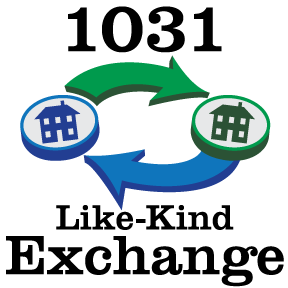
Generally, a 1031 exchange (also called a like-kind exchange) is a swap of one business or investment asset for another.In effect, you can change the form of your investment without (as the IRS sees it) cashing out or recognizing a capital gain. That allows your investment to continue to grow tax deferred.
There’s no limit on how many times or how frequently you can do a 1031. You can roll over the gain from one piece of investment real estate to another to another and another.
Although you may have a profit on each swap, you avoid tax until you actually sell for cash many years later. Then you’ll hopefully pay only one tax, and that at a long-term capital gain rate (currently 15% for most people).
If you’re considering a 1031–or just curious–here are 10 things you should know:
- A 1031 isn’t for personal use.
The provision is only for investment and business property, so you can’t swap your primary residence for another home. There are other rules for exempting tax on the sale of your homestead. You can sell your primary residence and, combined with your spouse, shield $500,000 in capital gain, so long as you’ve lived there for two years out of the past five.
- Some personal property qualifies.
Most 1031 exchanges are of real estate. However, some exchanges of personal property (say a painting) can qualify. Note, however, that exchanges of corporate stock or partnership interests don’t qualify. On the other hand, interests as a tenant in common (sometimes called TICs) in real estate do.
- “Like-kind” is broad.
Most exchanges must merely be of “like-kind”–an inscrutable phrase that doesn’t mean what you think it means. You can exchange an apartment building for raw land, or a ranch for a strip mall. The rules are surprisingly liberal. But then again, there are traps so you have to know what you are doing.
- You can do a “delayed” exchange.
Classically, an exchange involves a simple swap of one property for another between two people. But the odds of finding someone with the exact property you want who wants the exact property you have are slim. For that reason the vast majority of exchanges are delayed, three party, or “Starker” exchanges (named for the first tax case that allowed them). In a delayed exchange, you need a middleman who holds the cash after you “sell” your property and uses it to “buy” the replacement property for you. This three party exchange is treated as a swap.
- You must designate replacement property.
There are two key timing rules you must observe in a delayed exchange. The first relates to the designation of replacement property. Once the sale of your property occurs, the intermediary will receive the cash. You can’t receive the cash or it will spoil the 1031 treatment. Also, within 45 days of the sale of your property you must designate replacement property in writing to the intermediary, specifying the property you want to acquire.
- You can designate multiple replacement properties.
There’s long been debate about how many properties you can designate and what conditions you can impose. The IRS says you can designate three properties as the designated replacement property so long as you eventually close on one of them. Alternatively, you can designate more properties if you come within certain valuation tests. For example, you can designate an unlimited number of potential replacement properties as long as the fair market value of the replacement properties does not exceed 200% of the aggregate fair market value of all the exchanged properties.
- You must close within six months.
The second timing rule in a delayed exchange relates to closing. You must close on the new property within 180 days of the sale of the old. Note that the two time periods run concurrently. That means you start counting when the sale of your property closes. If you designate replacement property exactly 45 days later, you’ll have 135 days left to close on the replacement property.
- If you receive cash, it’s taxed.
You may have cash left over after the intermediary acquires the replacement property. If so, the intermediary will pay it to you at the end of the 180 days. That cash–known as “boot”–will be taxed as partial sales proceeds from the sale of your property, generally as a capital gain.
9. You must consider mortgages and other debt.
One of the main ways people get into trouble with these transactions is failing to consider loans. You must consider mortgage loans or other debt on the property you relinquish, and any debt on the replacement property. If you don’t receive cash back but your liability goes down, that too will be treated as income to you just like cash. Suppose you had a mortgage of $1 million on the old property, but your mortgage on the new property you receive in exchange is only $900,000. You have $100,000 of gain that is also classified as “boot,” and it will be taxed.
10. If it doesn’t go through, you pay the tax.
If you attempt to do an exchange that ultimately fails because you do not find an acceptable replacement property or the contract on the replacement property fails to close timely, the worst thing that happens is that you pay the tax (which you would have had to pay anyway if you did not attempt the exchange) and you are out-of-pocket on the costs of setting up the exchange.
As always with anything Tax/ Law related, use a professional!

Recent Comments